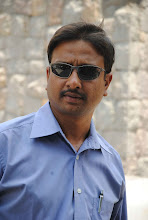DESARAJU SURYA
Hyderabad: Students in Andhra Pradesh pursuing professional and non-professional education will soon have to mark their attendance in their respective institutions in the biometric mode.
The State Department of Higher Education (DHE) has prepared a plan to introduce the biometric attendance system in all professional and non-professional educational institutions from the next academic year with a view to “improve the performance of students.”
Also, the state government wants to ensure that the total fee reimbursement scheme, which it has been implementing for the past two years, becomes foolproof with the introduction of biometric attendance system, according to state Minister for Higher Education D Sridhar Babu.
“Biometric attendance is a unique system being introduced for the first time anywhere in the country. This will ensure regular attendance of students to colleges and improve their academic performance,” Sridhar Babu said.
Biometric attendance was part of the “reform measures and policy initiatives” introduced by his department to shape-up higher education in Andhra Pradesh, the Minister added.
The state government has earmarked a sum of Rs 2278 crore in the 2010-11 budget towards post-matric scholarships and tuition fee to “all eligible students of SC, ST, BC, Economically-Backward Class, Minorities and also disabled” whose family income is less than Rs one lakh per annum.
There were allegations in the last two years that the fee reimbursement benefit was not actually reaching all eligible students with some college managements siphoning off funds using fictitious names.
In fact, the Chief Minister’s Office received many such complaints against non-reimbursement of tuition fee, particularly for some eligible engineering students.
The government then thought of introducing the biometric attendance system as a foolproof measure to check such misappropriation of funds and also ensure prompt attendance of students, official sources said.
The DHE has already introduced a “students’ attendance monitoring system” at the Plus-2 (Intermediate) level in the state to “strengthen and improve academic standards” and also streamline the functioning of public-funded institutions, Sridhar Babu said.
“We have abolished the shift system in junior colleges which has resulted in increase of teaching hours and working days while we are also conducting daily study hours to improve the education standards,” the Minister added.
From the 2010-11 academic year, a common academic calendar is also being brought into force for all universities and colleges in the state.
“The objective of our reforms programme is to produce quality human resources to the society,” Sridhar Babu noted.
Subscribe to:
Post Comments (Atom)






No comments:
Post a Comment